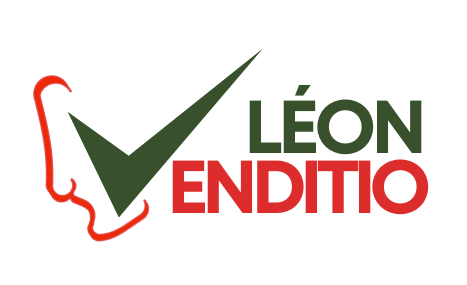
Selecting the Right Tools for Your Shoe Making Business: A Comprehensive Guide
Starting or expanding a shoe-making business can be an exciting but challenging journey. One of the most important decisions you’ll face is choosing the right tools and machinery for your workshop. The tools you use can make or break your production process, directly impacting the quality, efficiency, and cost-effectiveness of your business. At Leon Venditio, we understand the importance of having the right equipment to bring your shoe designs to life. In this guide, we’ll walk you through how to select the best tools for your shoe-making business, whether you’re just getting started or looking to scale up.
1. Understand Your Production Scale
Before investing in tools, it’s important to assess the scale of your production. Are you a small-scale artisan crafting custom shoes by hand, or are you running a larger workshop with plans to mass-produce shoes? The tools needed for handmade shoes differ greatly from those required in a high-output manufacturing environment.
- Small-Scale or Custom Production: If you’re creating bespoke shoes, you’ll likely focus on high-quality, manual tools that allow for fine craftsmanship, such as hand-cutting tools, sewing needles, leather shears, and manual lasts.
- Mid- to Large-Scale Production: For higher volumes, you’ll need to invest in machinery that speeds up production while maintaining quality, such as automated cutting machines, industrial sewing machines, and sole pressing machines.
2. Focus on Quality and Durability
When selecting tools for your business, always prioritize quality and durability. Tools that are built to last will not only give you better results but also save you money in the long run. Investing in high-quality tools means fewer breakdowns, less downtime, and a more consistent output. For example:
- Leather Sewing Machines: A heavy-duty sewing machine designed for leather will provide stronger stitches and last longer than a regular machine.
- Cutting Tools: Opt for cutting tools made from high-carbon steel, as they maintain their sharpness longer and allow for precise cuts, essential for creating clean edges on your shoe components.
3. Choose Tools Based on Your Shoe Type
Different shoe types require different tools. Whether you’re making boots, sandals, sneakers, or formal shoes, the materials and designs vary, and your tools need to reflect those differences.
- For Leather Shoes: Invest in leather-specific tools like leather cutters, skiving machines (for thinning leather), and leather edge trimmers.
- For Athletic Shoes: Athletic shoes require more specialized equipment, like rubber sole presses, pattern-making machines, and seam sealers to handle the complex materials used in sports footwear.
- For High-Fashion or Custom Shoes: If you’re working on bespoke or high-fashion shoes, you may need manual shoemaking tools, such as custom shoe lasts, wooden mallets, and nail pullers to shape and fit each shoe individually.
4. Consider Automation for Efficiency
As your business grows, you’ll likely want to increase production without sacrificing quality. This is where automation comes in. Automated machines like CNC leather cutting machines, industrial sewing machines, and heat setting machines can significantly reduce the time it takes to manufacture shoes while ensuring consistent results.
- Automated Cutting Machines: These machines allow you to cut multiple layers of material quickly and accurately, reducing material waste and speeding up production.
- Hydraulic Sole Press Machines: For businesses that require a faster, more reliable method of attaching soles to the shoe upper, hydraulic presses offer the pressure and consistency needed for a perfect bond every time.
5. Don’t Forget Finishing Tools
Finishing is what transforms a good shoe into a great one. Investing in finishing tools will help you achieve that professional, polished look that consumers expect. These tools include:
- Edge Burnishers: These help smooth and polish the edges of leather shoes, giving them a high-end finish.
- Shoe Polishers: Mechanical polishers or buffing wheels give your shoes a glossy finish while ensuring uniformity across pairs.
- Adhesives: Choosing the right adhesives is essential for ensuring that different shoe components stay securely bonded over time. Invest in high-quality shoe glues and cements.
6. Choose Adaptable and Multi-Purpose Tools
As your business grows and shoe designs evolve, you may need to adapt your production techniques. Investing in multi-purpose tools can help you stay flexible without having to continuously buy new equipment. For example, a multi-function sewing machine that can handle various materials—like leather, canvas, and fabric—will give you more versatility in the styles of shoes you can create.
7. Plan for Maintenance and Repairs
No matter how high-quality your tools are, they will eventually need maintenance or repairs. Ensure that you purchase tools from a reputable supplier, like Leon Venditio, where you can access maintenance support and spare parts when necessary. Regular maintenance of your machines will prolong their lifespan and ensure that your business avoids costly downtimes.
8. Consult an Expert
If you’re unsure which tools are best suited for your specific needs, don’t hesitate to consult an expert. At Leon Venditio, we offer personalized consultations to help you select the right tools based on your business size, production goals, and shoe styles. Our team has extensive knowledge of the shoe-making industry and can recommend the most appropriate equipment to help you succeed.


